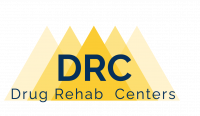How Does Drug Addiction Affect Families?

How addiction affects families occurs on multiple levels that include emotional, financial, legal, and health-related aspects. This is why many treatment experts emphasize the importance of healing the whole family unit during evidence-based addiction treatment. Read on to discover:
- How does addiction affect families?
- How addiction affects family dynamics.
- How does drug addiction affect families long-term?
Addiction in The Family Unit
How does alcohol addiction affect the family, then? Addiction’s grip on the family unit extends far beyond the person struggling with substance abuse. It creates a web of emotional, financial, legal, and health-related challenges that affect every member, with children often bearing a significant brunt of the impact. Understanding how addiction affects both adults and children within the family can help promote a supportive environment that promotes healing and recovery for all involved.
Emotional and psychological impact
Families grappling with addiction face a rollercoaster of emotions. Adults may experience stress, anxiety, guilt, and shame, driven by the chaotic nature of addiction and societal stigma. For children, these emotional challenges are compounded by feelings of insecurity, fear, and confusion. The unpredictable behavior of an addicted parent can leave children feeling unstable and anxious, while societal perceptions of addiction may lead them to experience shame and isolation.
Financial and legal strain
The financial demands of addiction – ranging from the costs associated with substance use to potential legal fees – can place a heavy burden on family resources. This strain often leads to additional stress and conflict within the family. For children, the financial instability may result in unmet needs or changes in living conditions, further worsening their sense of insecurity.
Social and behavioral changes
Addiction can lead to significant social and behavioral changes within the family. Adults may withdraw from social networks, while children might isolate themselves to avoid exposure to judgment or bullying related to their family situation. The stress and turmoil at home can affect children’s academic performance and increase their risk of engaging in substance use as a coping mechanism.
Developmental and health concerns
Children in families affected by addiction are at risk of developmental delays, particularly in emotional regulation and attachment. The constant stress and disruption can stunt their ability to form healthy relationships and achieve developmental milestones. Additionally, both adults and children may suffer from health issues related to stress and neglect, including mental health disorders like depression and anxiety.
Mitigating effects through family healing
The path to mitigating the effects of addiction on the family unit involves addressing the needs of both adults and children. Treatment professionals advocate for a holistic approach that includes:
- Therapy and counseling: Engaging in family therapy can help address the emotional and psychological wounds caused by addiction, teaching healthier communication and coping strategies.
- Support groups: Participating in support groups provides a sense of community and understanding, offering both adults and children a space to share their experiences and learn from others.
- Educational programs: Educating the family about addiction and its impacts can demystify the condition and reduce stigma, engendering a more supportive environment for recovery.
Healing the family unit from the ravages of addiction requires a concerted effort that recognizes the unique challenges faced by each member, especially children. By focusing on comprehensive support and intervention, families can navigate the path to recovery together, rebuilding trust, strengthening relationships, and creating a stable, nurturing environment for all members.

How Can I Get Help for My Addicted Family Member?
Discovering that a family member is struggling with addiction can be overwhelming, leaving you feeling helpless and unsure of how to proceed. However, there are many resources available to help both your loved one and your family in navigating the journey toward recovery. Here’s how you can begin:
- Learn more about addiction: Learn about addiction as a chronic disease that affects brain function and behavior. Understanding the complexities of addiction can foster empathy and patience in dealing with your loved one.
- Recognize the signs of addiction: Being able to identify the signs and symptoms of addiction can help in acknowledging the problem and seeking timely help.
- Open dialogue: Approach your loved one in a non-confrontational way. Express your concerns without blame or judgment, focusing on the effects of their behavior on themselves and the family.
- Listen actively: Give them space to share their feelings and experiences. Active listening can help build trust and open the door to seeking help.
- Consult addiction professionals: Reach out to addiction counselors, therapists, or medical professionals who specialize in addiction treatment. They can provide guidance on the best course of action and treatment options.
- Consider intervention: In some cases, a professional intervention may be necessary. An intervention specialist can help you organize a structured meeting to encourage your loved one to accept treatment.
- Research treatment programs: There are various types of treatment programs available, including inpatient rehabilitation, outpatient programs, and support groups. Each has its advantages, depending on the severity of the addiction and individual needs.
- Support through detoxification: If necessary, the first step in treatment may involve detoxification under medical supervision to safely manage withdrawal symptoms.
- Engage in family therapy: Addiction affects the entire family. Participating in family therapy can help heal relationships and improve communication.
- Join support groups: Groups like Al-Anon or Nar-Anon offer support and advice for families of individuals struggling with addiction, providing a community of individuals who understand what you are going through.
- Set clear boundaries: Establishing healthy boundaries is essential for your well-being and supports your loved one’s journey to recovery. Boundaries can include rules about substance use in the home or financial limits.
- Take care of yourself: Make sure to look after your own physical and emotional health. Engaging in self-care practices and seeking individual therapy can provide the strength needed to support your loved one.
- Stay updated on progress: Being involved in your loved one’s treatment process can help you understand their progress and challenges, enabling you to offer appropriate support.
- Maintain hope: Recovery is a journey with its ups and downs. Staying hopeful and encouraging your loved one through setbacks can make a significant difference in their path to recovery.
Seeking help for an addicted family member requires patience, understanding, and persistence. By educating yourself, engaging in open communication, and utilizing available resources, you can provide the support needed to navigate the complexities of addiction and move toward a healthier future for your loved one and your family.
Support for Family Members of Addicts
Coping with a family member’s addiction can be an emotionally taxing and isolating experience. It’s imperative that family members seek support for themselves, to navigate the challenges of addiction, and to maintain their own well-being. Here are some resources and strategies for finding support:
Engage with support groups
- Al-Anon and Nar-Anon: These are two of the most well-known support groups for families of individuals struggling with alcohol and drug addictions. They offer a safe space to share experiences, gain insights, and receive emotional support from others facing similar challenges.
- Family support meetings: Many rehabilitation centers and community organizations host support meetings for families affected by addiction. These meetings can provide education, resources, and a community of support.
Seek professional counseling
- Family therapy: A therapist specializing in addiction can work with your family as a whole to address the impact of addiction, improve communication, and begin the healing process.
- Individual therapy: Personal therapy sessions can help you deal with the emotional stress, anxiety, and other psychological effects of your loved one’s addiction.
Educate yourself
- Workshops and seminars: Participating in educational programs about addiction and recovery can help you understand the challenges your loved one faces and how you can effectively support them.
- Reading material: Books, articles, and online resources specifically designed for families of addicts can offer valuable insights and coping strategies.
Practice self-care
- Prioritize your health: Engaging in regular physical activity, maintaining a healthy diet, and ensuring adequate sleep are vital for your physical and emotional resilience.
- Mindfulness and relaxation techniques: Practices like meditation, yoga, and deep-breathing exercises can help manage stress and promote emotional balance.
Set healthy boundaries
- Learn to say no: Setting and enforcing boundaries will help protect your well-being and encourage your loved one’s responsibility for their actions.
- Seek guidance on boundary-setting: Support groups, counselors, and educational materials can offer advice on how to establish and maintain healthy boundaries.
Connect with online communities
- Online forums and social media groups: Digital platforms can offer support and advice at any time, providing a convenient way to connect with others who understand your situation.
- Virtual meetings and webinars: Many organizations offer virtual support meetings and educational webinars that can be accessed from anywhere, making it easier to find support.
Take legal and financial precautions
- Consult with legal professionals: If addiction has led to legal issues, consulting with a lawyer who has experience with such cases can provide guidance and peace of mind.
- Financial counseling: Professional financial advisors or workshops can help you manage the economic impact of addiction on your family.
Support for family members of addicts is an integral part of the recovery journey. By utilizing these resources and strategies, you can find the strength and guidance needed to support your loved one while also taking care of your own needs. Keep in mind that you’re not alone in this journey, and there are communities and professionals ready to help you navigate this challenging time.

Find Drug Addiction Treatment for Your Loved One at Drug Rehabs Centers
If you have a loved one who needs treatment for drug dependence or addiction, you may have no idea how to find the help you need. Shortcut your search and connect with Drug Rehabs Centers.
Most people who are dependent on drugs or alcohol require supervised medical detoxification – severe drug and alcohol withdrawal can be fatal if untreated. We can provide referrals to medical detox centers throughout California.
We can also help you find inpatient or outpatient rehab, depending on the severity of your loved one’s addiction, as well as peer support groups for those abusing substances and their family members.
Call (844) 739-2005 for on-the-spot assistance and effective addiction treatment in Southern California.
